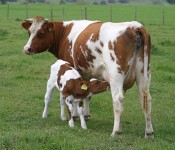Alice Waters: Put Your Menu Where Your Mouth Is

Recently, the Wall Street Journal (WSJ) printed a piece on food and specifically the food of the south of France. Underlying the story is a question: Why are we so hungry for the food of the South of France right now? In trying to answer that question, Alice Waters, the 79-year old founder of Chez Panisse in Berkeley, California said
We need to make our diets healthy by eating more fruit and vegetables and less meat, and we need to respond to climate change with farming methods that protect and renew the earth…which is what they’ve been doing in the south of France for centuries.
After I read that quote I had to sit back and really think about what she said because her answer addressed two (2) issues: healthier diets and farming methods that protect and renew the earth – neither of which is prevalent in France or the US. In fact, the reality is the south of France (and the United States) are not responding to climate change with farming methods that protect and renew the earth because diets in both countries have a heavy emphasis on animal products (note: diets heavy in animal products are higher in saturated fat which contributes to obesity, diabetes, and heart disease).
Most farmland has crops (primarily corn and soybeans) grown to feed animals because humans have an insatiable appetite for meat and dairy. Estimates vary but 80 – 100 billion animals a year (10 billion in the US alone with 99% raised in factory farms; 1 billion in France with 60% raised in factory farms) are slaughtered annually for meat.
France is the 10th largest producer of meat in the world (China is number 1 followed by the US) with an average annual consumption rate of 250 pounds per person (twice the global average and comparable to the US average consumption rate of 225 pounds per person annually) according to The Guardian and the USDA.
France is the 10th largest producer of milk in the world (India is number 1 followed by the US) but both France and the US consume about 500 pounds per person annually.
Cows can only produce milk if pregnant (most are impregnated artificially) or if given birth so calves are taken away from their mothers so they can produce milk for humans to process into milk, butter, cheese, ice cream and other dairy products for humans to consume. Female calves are raised to be dairy cows, meat, or producers while males are put in small pens and slaughtered at 16-18 weeks old for veal or raised for meat.
In short, the world is participating in unsustainable practices and this is reflected in the menus and product selection at restaurants, cafes, bakeries, and grocery stores. All you have to do is look.
A recent Chez Panisse menu reads as follows:
RESTAURANT MENUS, APRIL 12–20, 2024
FRIDAY, APRIL 12
Asparagus and goat cheese galette with green olive tapenade and mâche salad
Grilled gulf shrimp with fava beans, preserved Meyer lemon salsa, and herby breadcrumbs
Northern halibut steamed in savoy cabbage leaves; with red wine–shallot butter sauce, sautéed spinach, crispy potatoes, and artichokes
Lemon verbena panna cotta with strawberries and rhubarbSATURDAY, APRIL 13
Dungeness crab cake with wild fennel and kumquat salad and sauce mousseline
Tagliatelle with artichokes, fava beans, ricotta salata, and mint gremolata
Spit-roasted Stemple Creek Ranch grass-fed beef rib-eye with anchovy-herb butter, gaufrette potatoes, sautéed spinach, and roasted carrots
Bittersweet chocolate souffléTUESDAY, APRIL 16
Artichoke and snap pea salad with creamy ricotta and mint
Wild greens agnolotti with fava beans and green garlic
Grilled wild king salmon with bearnaise sauce, asparagus, roasted carrots, and glazed Tokyo turnips
Lindsey’s almond cake with strawberry ice creamWEDNESDAY, APRIL 17
Fried asparagus with Pennyroyal Farm goat cheese, golden beets, and herb salad
Pan-roasted striped bass with carrot purée, leeks, and beurre rouge
Wolfe Ranch quail grilled with sage and pancetta; with green pea and spring onion ragout, spinach, and crispy parsnips
Rhubarb galette with candied orange ice creamTHURSDAY, APRIL 18
Warm asparagus vinaigrette with wild rocket, mustard blossoms, and tarragon mousseline
Bodega Bay rockfish soup with clams and green garlic croûton
Becker Lane Farm pork loin spit-roasted with rosemary; with fennel gratin, chard, and baby carrots
Meyer lemon ice cream profiteroles with huckleberriesFRIDAY, APRIL 19
Dungeness crab salad with preserved Meyer lemon, ginger, and green coriander seeds
Wild nettle pudding soufflé with fava beans and spring onions
Spit-roasted Stemple Creek Ranch grass-fed beef rib-eye with gaufrette potatoes, roasted carrots, spinach, and anchovy-herb butter
Bittersweet chocolate tart with hazelnut pralineSATURDAY, APRIL 20
Artichoke and Lucques olive salad with frisée and Cesare’s prosciutto
Northern halibut steamed over bay leaves with julienned vegetables and wild fennel beurre blanc
Grilled Paine Farm squab au poivre with Tokyo turnips, spring greens, and fava beans
Strawberry ice cream meringue tartlet
No doubt the menu is delicious but the offerings are dominated by animal products (even the vegetarian options include animal products in the form of dairy) so how does this menu offer solutions to our most urgent food challenges? Before a restauranteur talks about healthy diets and sustainable farming methods that “protect and renew the earth,” maybe they should consider looking at their own practices and ask if their menu accurately reflects the food challenges we are facing.
In closing, I would venture to say people are hungry for the food of the south of France for the same reasons they always have been: because it tastes good, because they love meat and dairy products – not because the food is healthier or the farming methods are sustainable.
